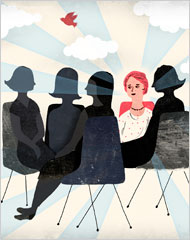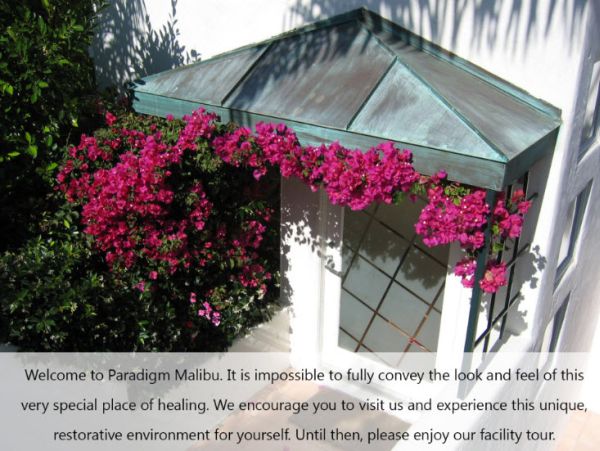Are there Non-Religious Addiction Support Groups?
Often, when substance addicted individuals are looking for a non-expensive treatment that can help them learn coping skills, meet others dealing with the same issues, and find a community that helps them build a solid recovery foundation, an addiction support group seems like a good option. Especially for someone with a mild addiction or without a co-occurring disorder, support groups can be the best treatment to help you stay focused on your recovery.
Many support groups (and especially the better known ones) work under the concept of a higher power and state that the individual must submit to the higher power, pray, and/or meditate in order to stop abusing drugs or alcohol. But for those who do not wish to bring religion into their treatment, are there any non-religious addiction support groups?
Why a Non-Religious Addiction Support Group?

Non-religious support groups can help you cope with your addiction.
Many women do not feel comfortable with the concept of bringing religion into their treatment. They may have embarrassing or unpleasant memories of how they felt during religious services when they were younger. Or, in some cases, they merely do not feel comfortable with religious teachings. According to the NIDA, “No single treatment is appropriate for everyone” and “effective treatment attends to multiple needs of the individual.”
If you are a woman who has a busy life including work, relationships, family, children, school, and/or other responsibilities, you might choose a support group as your treatment method because it is readily available and does not require leaving behind all of the important aspects of your life like inpatient treatment does. And, because many of the most common addiction support groups are religious in some way, you should not feel that you cannot attend one if you are not religious yourself.
You would not go to a religious rehab center if you didn’t feel comfortable with religious teachings, so you should not feel that you need to become a member of a religious support group because there aren’t any others available, or that you have to forgo becoming a support group member if all other aspects of the treatment fit your needs. For many women, non-religious addiction support groups are a welcome treatment option.
Are There Non-Religious Addiction Support Groups?
Yes. While support groups like Alcoholics Anonymous and Narcotics Anonymous are some of the most popular, they do ascribe to the concept that a belief in a higher power is a part of the treatment process, as stated in the 12 steps. Sometimes, these and such other programs encourage members to think of that power in whatever way they choose, but this can still be uncomfortable and discouraging to many women.
If you are looking for a non-religious addiction support group, there are actually several that are widespread when it comes to meetings and groups that can help. For some women especially, these treatments are the most essential and allow them to find the kind of support group treatment they need without religion as a part of it.
Some of the more popular, non-religious support groups for substance abuse are:
- SOS (Secular Organizations for Sobriety)
- Lifering (LifeRing Secular Recovery)
- SMART Recovery (Self-Management and Recovery Training)
- HAMS (Harm Reduction for Alcohol)
There are even programs created specifically for women to help them overcome addictions to alcohol and drugs. If you decide that you want to attend one of the support groups mentioned above or a similar group, you only need to do a little research.
How to Find Non-Religious Addiction Support Groups in Your Area
There are non-religious addiction support groups and some that are catered specifically to women. In these groups, all of the individuals in the group (even the counselors and sponsors) are female and members are able to discuss the unique and painful experience of substance addiction as it specifically affects women. Finding these support groups can take research and effort, but it will be worth it if the treatment type is truly the most fitting of your needs.
- Search SAMHSA‘s behavioral treatment locator. You can find facilities that are close to you which offer formal addiction treatment, and some of these may have support groups that meet there as a part of the program. Calling ahead can help you find out what treatments and possible groups are a part of a certain facility.
- Ask your doctor about a non-religious substance addiction group and be clear that you are not interested in the common AA and NA meetings. Your doctor might know a group that meets nearby or may be able to help you find that information.
- Go to a community outreach program. There may be a possibility that a group meets there or that some of the volunteers or staff can help you find a group that meets elsewhere.
- Someone at your local government office may be able to help you find a non-religious support group in your area if you ask for help there. Either at a city or county level, there should be some information on possible, non-religious alternatives to the usual support groups.
Can a Non-Religious Support Group Help You?
Yes, depending on your needs both addiction and non-addiction-based, a support group without religious overtones can be very beneficial to your treatment. Some people merely feel more comfortable when religion is taken out of the equation, just like some people draw comfort from their religions; it’s all about preference and what is best for the individual.
As stated by the NIDA, “Science has taught us that stress, cues linked to the drug experience (such as people, places, things, and moods), and exposure to drugs are the most common triggers for relapse.” The lessons and therapy sessions in these non-religious groups will stress the importance of this and help patients avoid these kinds of issues as much as possible.
For some women, strength is drawn from somewhere other than a higher power: the hope to be strong for a loved one, for one’s health, or even just for one’s self. If you decide that a non-religious addiction support group might be for you, consider the different options and look for a meeting in your area.
Paradigm Malibu
Merriam Webster defines “Paradigm” as a theory or a group of ideas about how something should be done – a fitting definition for this unique, multifaceted treatment program for adolescents.
Details ›Fellowship Hall
You're not a resident or a client at Fellowship Hall, and you’re definitely not a patient. You’re a guest. Whatever the terminology, miracles happen at this treatment center snugly situated amidst the gently rolling hills of North Carolina’s historic Piedmont area.
Details ›Timberline Knolls
Women and teen girls struggling with addiction and eating disorders discover a pathway to health, healing, and hope in this peaceful, female-only treatment center located on 23-wooded acres in suburban Chicago.
Details ›








